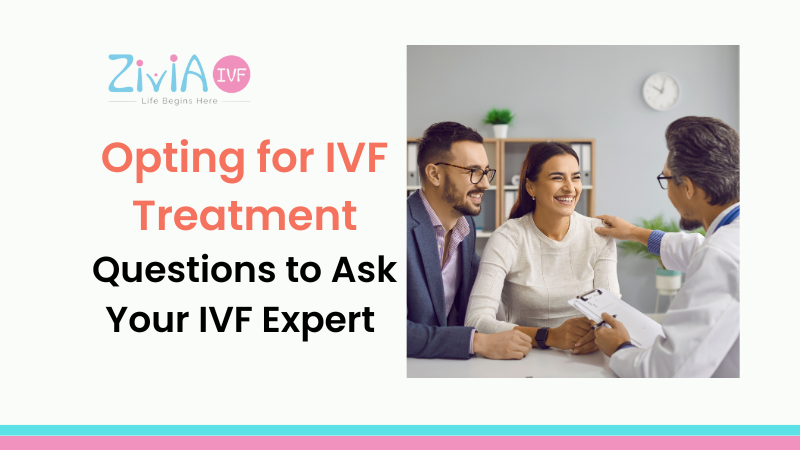
IVF, or In Vitro Fertilization, is an assisted reproductive procedure where an egg and sperm are fertilized outside the body in a laboratory in a Petri dish. The embryo formed is matured to the blastocyte stage and then transferred to the uterus for implantation and pregnancy. IVF is often used to treat infertility or genetic disorders that may make it difficult to conceive naturally.
If you are recommended an IVF treatment, you must not be shy to ask questions from your IVF specialist.
Importance of asking questions
It is important to ask questions to an IVF expert because the process can be complex and may involve significant financial and emotional investment.
Understanding the steps involved, the potential risks and complications, the likelihood of success, and the available support can help individuals make informed decisions and feel more comfortable with the process.
Additionally, each individual’s situation is unique, and an IVF expert can provide personalized recommendations based on medical history, age, and other factors. Asking questions can also help individuals feel more involved in their care and build trust with their healthcare providers.
Important questions to ask your IVF specialist
Couples have many questions. Here are some important questions our IVF specialist in Pune has answered. You can read them and have an idea about the process. You can also prepare more questions to ask your IVF specialist.
- What are my chances of success with IVF?
The chances of success can vary depending on several factors, such as age, medical history, and the cause of infertility. Your IVF expert can give you an estimate based on your individual situation.
- What are the potential risks and complications of IVF?
IVF can carry some risks, such as ovarian hyperstimulation syndrome, multiple pregnancies, and ectopic pregnancy. Your IVF expert can explain the potential risks and how they can be minimized.
- What support is available during pregnancy?
During pregnancy after IVF, patients can receive medical support from their obstetrician or midwife, as well as continued monitoring from their IVF clinic. Many IVF clinics also offer additional emotional support, such as counseling or support groups, to help patients navigate the unique challenges of pregnancy after infertility treatment.
- How long will the IVF process take?
The IVF process typically takes several weeks to a few months, depending on the specific protocol used. Your IVF expert can give you an estimate based on your individual situation.
- What is the cost of IVF, and what are the payment options?
The cost of IVF can vary depending on the clinic and the specific protocol used. Your IVF expert can give you an estimate of the cost and discuss payment options, such as insurance coverage, financing, and discounts.
- Are there any lifestyle changes I need to make before starting IVF?
Depending on your medical history and lifestyle factors, your IVF expert may recommend changes such as quitting smoking, reducing alcohol intake, or losing weight to optimize your chances of success.
- What emotional support is available during the IVF process?
IVF can be emotionally challenging, and many clinics offer counseling services or support groups to help patients cope. Your IVF expert can provide information on available resources and how to access them.
Consult Zivia to make an informed decision.
Being informed and comfortable with the IVF process can help individuals make more informed decisions and feel more in control of their care. It can also reduce anxiety and stress related to the treatment, which can have a positive impact on both physical and emotional health.
At Zivia IVF, our priority is to give you the best quality fertility treatments. Talk to our experts and make an informed and life-changing decision with our fertility treatments.
